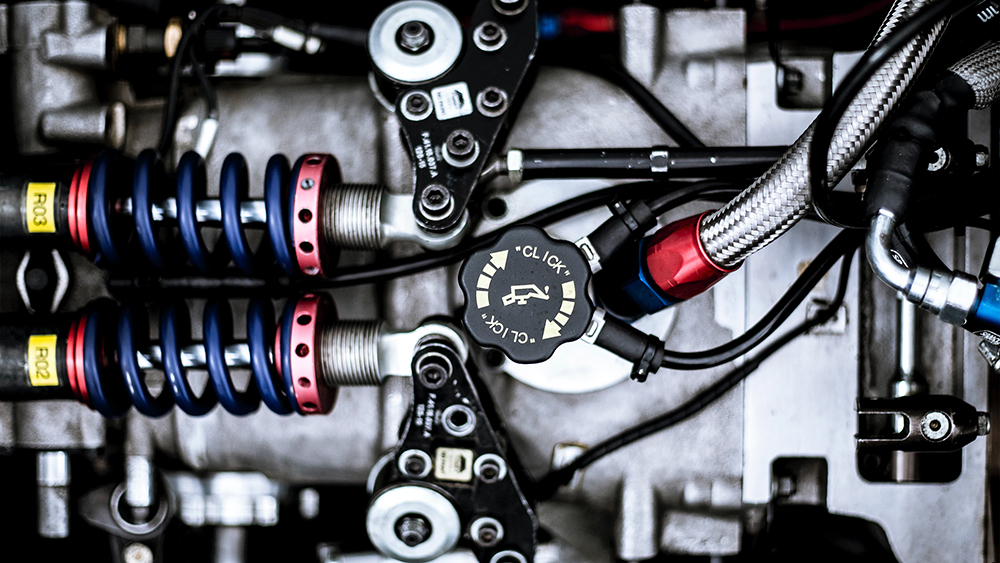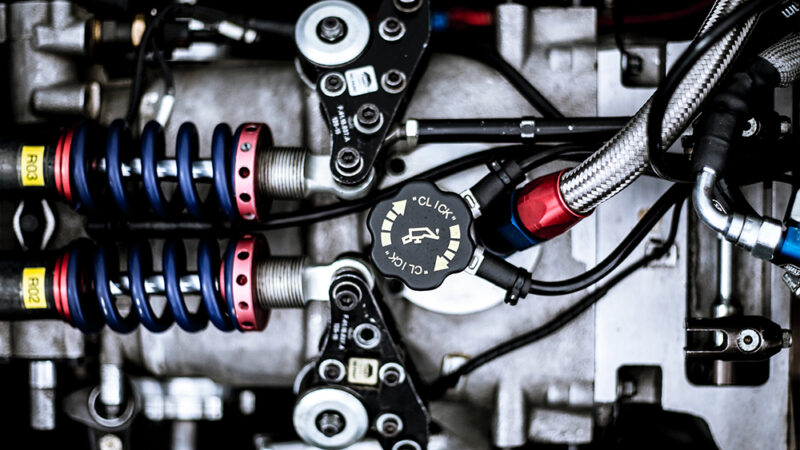In its February 2022 decision in RallySport Direct LLC, the Federal Court of Appeal (“FCA”) reiterated and confirmed the principle established in the decision of the Ontario Superior Court in Trader. This Court determined that a copyright owner could claim the statutory damages provided in section 38.1 of the Copyright Act (“Act”), even where there was no monetary damage and no loss of business opportunity.
The decision of the FCA is encouraging for copyright owners, since it makes a clear distinction between two scenarios in which a plaintiff may tie their claim to their ability to prove the harm done. On one hand, there is the classic claim for damages that are proportionate to or correlate with the actual damage suffered, for plaintiffs who are able to prove such damage. On the other hand, the FCA confirmed that statutory damages are available in situations where it is difficult for a copyright owner to quantify or even determine the economic loss resulting directly from the infringement of their rights.
Summary of the facts
RallySport, an American automotive parts retailer, advertised certain automotive components and kits on its website using photographic works and product descriptions. 2424508 Ontario Ltd., which became 2590579 Ontario Ltd. (“242/259”) after its bankruptcy, reproduced those works and some other product descriptions on its own website. RallySport then brought an action against 242/259 asking the Federal Court for an injunction to compel 242/259 to cease reproducing its photographic works on its website. RallySport also claimed damages under section 38.1 of the Act.
Decision of the Federal Court
At trial, the Federal Court found for RallySport. The judge held that there was copyright infringement and ordered 242/259, jointly and severally, to pay statutory damages in the amount of $250 per work for 1,430 photographic works, for a total of $357,500, as well as punitive damages in the amount of $50,000.
242/259 appealed the award of damages, on the ground that the amount awarded was disproportionate and excessive.
Award of statutory damages
On appeal, 242/259 argued that the statutory damages established by the Act must be awarded only if there is some correlation or proportionality between the actual damage and the statutory damages. However, following what the Superior Court of Ontario held in Trader, the FCA upheld the principle stated in this case, meaning that statutory damages do not require a monetary loss or loss of business opportunity to be shown.
The FCA first noted that the use of the photographic works led to an increase in the company’s revenue by making the products more visible. However, this value was difficult to quantify when it came time to assess the quantum of statutory damages. The FCA pointed out that even if the harm sustained by a copyright owner is difficult to quantify, the action is by no means doomed to fail. The statutory damages may be awarded even if no monetary damage was suffered and no loss of business opportunity occurred.
The FCA pointed out that in this situation, there could be no direct economic loss resulting from the infringement of RallySport’s copyright since the works were not created for their own sale, but to facilitate the sale of other products. The FCA therefore extended the availability of statutory damages, given that quantifying actual business losses is not always possible. Instead, in this case, it used the cost of producing the photographs as a basis for assessing the quantum of statutory damages.
However, as the Supreme Court of British Columbia very recently observed in Equustek, it must be kept in mind that statutory damages are calculated on a per work basis, not per infringement. The owner of a single work, even if it is illegally reproduced and thousands of copies are made, can claim only the maximum prescribed by the Act, which is C$60,000. However, if several of an owner’s works are infringed, as in RallySport, they may claim a substantial amount the total of which may be well beyond that threshold.
Reduction of statutory damages
242/259 also contested the quantum of damages awarded at trial, which was $250 per work. The Federal Court had already reduced those amounts, which would otherwise have been fixed at a minimum of $500 per work, pursuant to subsection 38.1(3) of the Act. In so doing, the Court considered factors which included (1) the good faith or bad faith of the defendants; (2) the conduct of the parties during the proceedings; and (3) the need to deter future infringements. The FCA noted that other factors could be taken into account, such as the production cost of creating the work. However, the FCA held that 242/259 did not demonstrate an error in that determination. Therefore, the FCA concluded that it was not necessary to further reduce that amount.
Award of punitive damages
The FCA clarified that even though the Act provides that statutory damages may have a deterrent effect, that does not preclude the possibility of obtaining punitive damages, depending on the case.
Applying that reasoning, the Court in RallySport Direct LLC upheld the award of punitive damages, finding that the defendants’ actions demonstrated bad faith.
This FCA decision is of interest to copyright owners because it highlights that the Canadian copyright protection system is robust and offers easy avenues for copyright owners who wish to claim damages even when the actual damage are difficult to quantify.
If you have questions, the Fasken team has all the expertise needed to help you establish a strategy for your copyright litigation.

La Cour d’appel fédérale a tranché : nul besoin de preuve de dommages réels pour obtenir les dommages-intérêts préétablis sous la Loi sur le droit d’auteur
Dans un arrêt rendu en février 2022 dans l’affaire RallySport Direct LLC, la Cour d’appel fédérale (ci-après « CAF ») réitère et fait sien le principe établi dans l’arrêt Trader de la Cour supérieure de l’Ontario. Cette cour avait déterminé qu’un titulaire de droit d’auteur peut réclamer les dommages-intérêts préétablis prévus par Loi sur le droit d’auteur (ci-après « Loi ») à son l’article 38.1, et ce même en l’absence de dommage monétaire ou de pertes d’occasion d’affaires.
La décision de la CAF est encourageante pour les titulaires de droits d’auteur, car elle distingue clairement deux cas de figure où le demandeur peut arrimer sa réclamation à sa capacité à prouver ses dommages. D’une part, on retrouve la réclamation classique des dommages-intérêts proportionnels ou corrélatifs au dommage réel subi pour ceux capables de prouver de tels dommages. D’autre part, la CAF confirme que les dommages-intérêts préétablis sont disponibles dans les situations où il est difficile pour un titulaire de droits d’auteur de quantifier ou même déterminer la perte économique qui découle directement de la violation de ses droits.
Résumé des faits
RallySport, une société américaine de revente de pièces détachées pour automobile, faisait la promotion de certaines composantes et kits automobiles sur son site Web à l’aide d’œuvres photographiques et de descriptions de produit. 2424508 Ontario Ltd, qui suivant sa faillite deviendra 2590579 Ontario Ltd (ci-après « 242/259 ») ont reproduit ces œuvres ainsi que quelques descriptions de produit sur leur propre site Web. RallySport intente alors une action en justice contre 242/259. Elle demandait, notamment, à la Cour fédérale une injonction à l’encontre de 242/259 pour faire cesser la reproduction de ses œuvres photographiques sur leur site Web. La demande visait également à obtenir des dommages-intérêts en vertu de l’article 38.1 de la Loi.
Décision de la Cour fédérale
En première instance, la Cour fédérale a statué en faveur de RallySport. La juge soutient qu’il y a eu une violation des droits d’auteur et ordonne à 242/259 de payer conjointement et solidairement les dommages-intérêts préétablis d’une somme de 250$ par œuvre pour 1430 œuvres photographiques, pour un montant total de 357 500$, ainsi que des dommages-intérêts punitifs de 50 000$.
242/259 interjettent appel de la décision relative aux dommages-intérêts considérant que la somme octroyée est disproportionnée et excessive.
L’octroi de dommages-intérêts préétablis
En appel, 242/259 invoque que les dommages-intérêts préétablis par la Loi doivent être octroyés uniquement s’il y a une certaine corrélation ou proportionnalité entre les dommages réels et les dommages préétablis. Toutefois, suivant les enseignements d’une décision rendue par la Cour supérieure de l’Ontario dans Trader, la CAF maintient le principe énoncé dans cette affaire que les dommages-intérêts préétablis ne requièrent pas la démonstration d’une perte monétaire ou de pertes d’occasion d’affaires.
La CAF a d’abord noté que l’utilisation des œuvres photographiques permettait d’augmenter les revenus de l’entreprise en offrant une meilleure visibilité des produits. Il s’agit cependant d’une valeur difficile à quantifier quand vient le temps d’évaluer le quantum des dommages-intérêts préétablis. La CAF souligne que même si le préjudice subi par le titulaire du droit d’auteur est difficilement quantifiable, le recours n’est pas voué à l’échec pour autant. Les dommages-intérêts préétablis peuvent être accordés même si aucun dommage monétaire n’est subi et qu’aucune perte d’occasion d’affaires n’est survenue.
La CAF souligne en effet que dans la présente situation, il ne peut y avoir de perte économique directe découlant de la violation du droit d’auteur de RallySport puisque les œuvres étaient créées non pas pour être vendues, mais pour faciliter la vente d’autres produits. La CAF élargit donc les possibilités d’obtenir des dommages-intérêts préétablis, considérant qu’il n’est pas toujours évident de chiffrer les pertes commerciales réelles. Ici, elle utilise plutôt le coût de production des photographies comme assise pour évaluer le quantum des dommages-intérêts préétablis
Il faut toutefois garder en tête, comme le rappelle très récemment la Cour suprême de la Colombie-Britannique dans l’affaire Equustek, que les dommages-intérêts préétablis sont calculés par œuvre et non par violation. Un titulaire d’une seule œuvre, même si reproduites illégalement en milliers de copies, ne peut réclamer que le maximum prescrit par la loi, soit 60 000$ CAD. Au contraire, si plusieurs de ses œuvres sont enfreintes, comme dans RallySport, le titulaire peut réclamer une somme substantielle qui dans l’agrégat peut largement dépasser ce seuil.
La réduction des dommages-intérêts préétablis
242/259 contestent également le montant des dommages-intérêts octroyés en première instance, soit 250$ par œuvre. La Cour fédérale avait déjà réduit ces montants, autrement fixés à un minimum de 500$ par œuvre, en application du paragraphe 3 de l’article 38.1 de la Loi. Pour ce faire, elle tient compte notamment (1) de la bonne ou mauvaise foi des défendeurs (2) de la conduite des parties pendant les procédures ainsi que (3) du besoin de dissuader les violations futures. La CAF mentionne que d’autres facteurs peuvent être pris en compte, tel que le coût de production de la création de l’œuvre. Elle conclut toutefois que 242/259 ne l’ont pas convaincu de la présence d’une erreur dans cette détermination et qu’il n’est pas nécessaire de réduire davantage le montant.
L’octroi de dommages-intérêts punitifs
Finalement, la CAF clarifie que même si les dommages-intérêts préétablis dans la Loi prévoient que ceux-ci peuvent avoir un effet de dissuasion, cela n’exclut pas la possibilité d’obtenir des dommages-intérêts punitifs selon le cas.
En appliquant ce raisonnement, la Cour dans l’affaire RallySport Direct LLC maintient l’octroi de dommages-intérêts punitifs considérant les agissements des défendeurs comme étant empreint de mauvaise foi.
Cette décision de la CAF est intéressante pour les titulaires de droits d’auteurs puisqu’elle souligne que le régime de protection canadien du droit d’auteur est robuste et offre des avenues facilitées pour un titulaire qui désire réclamer des dommages-intérêts même en l’absence d’un dommage réel quantifiable.
Pour toutes questions à cet égard, l’équipe de Fasken dispose de toute l’expertise pour vous aider à établir une stratégie pour vos litiges en matière de droits d’auteur.




